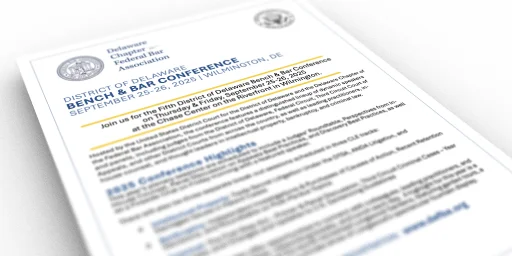
Yesterday, the Judicial Conference announced the end to the exception permitting remote public access during COVID-19:
The COVID-19 emergency is no longer affecting the functioning of the federal courts, the Judicial Conference’s Executive Committee has found, setting in motion a 120-day grace period in which federal courts may continue to provide the same remote public audio access to civil and bankruptcy proceedings as they did during the emergency.
The Executive Committee finding takes effect May 24. The grace period, which ends Sept. 21, relates only to the Judiciary’s temporary broadcasting exception for remote audio public access to civil and bankruptcy proceedings.
The Judicial Conference put this exception in place back in March, 2020, so it has extended for over three years at this point.
Will this impact remote hearings going forward? I know that at least one Delaware judge, Judge Burke, has continued to suggest to parties that they conduct hearings remotely, including in the last month:
ORAL ORDER: The Court, having reviewed the parties' April 14, 2023 letter regarding the Markman hearing (the "April 14 letter"), (D.I. 102 in Civil Action No. 21-1592-CJB; D.I. 77 in Civil Action No. 22-57-CJB), hereby ORDERS as follows: [T]he parties should . . . let the Court know if there is joint agreement to conduct the Markman hearing via videoconference. If there is joint agreement, the Court will do so; if there is not joint agreement, then the hearing will go forward as an in-person hearing in Courtroom 2A.
I haven't had a case recently where the parties agreed to conduct a Markman or summary judgment hearing by videoconference, but it's certainly nice to have the option. Avoiding travel is obviously far more efficient, saving clients a lot of money on fees and costs, and allowing more attorneys to attend the hearing.
At this point, the Court has nicely refined its procedures and technology for handling remote hearings (remember Skype for Business? It's probably best if you don't), and I personally hope that videoconference hearings remain an option in the future. The Judicial Conference announcement leaves that possibility open:
The Judicial Conference Committee on Court Administration and Case Management (CACM) continues to study possible changes to the Judiciary’s broadcasting policy relating to civil and bankruptcy proceedings, based on data gathered during the pandemic. Courts have been told that the committee may provide a report at the next Judicial Conference session, on Sept. 12.
Even before the pandemic, discovery disputes were regularly handled by teleconference, so I expect telephone or video conferences will remain an option for those hearings regardless.
If you enjoyed this post, consider subscribing to receive free e-mail updates about new posts.






